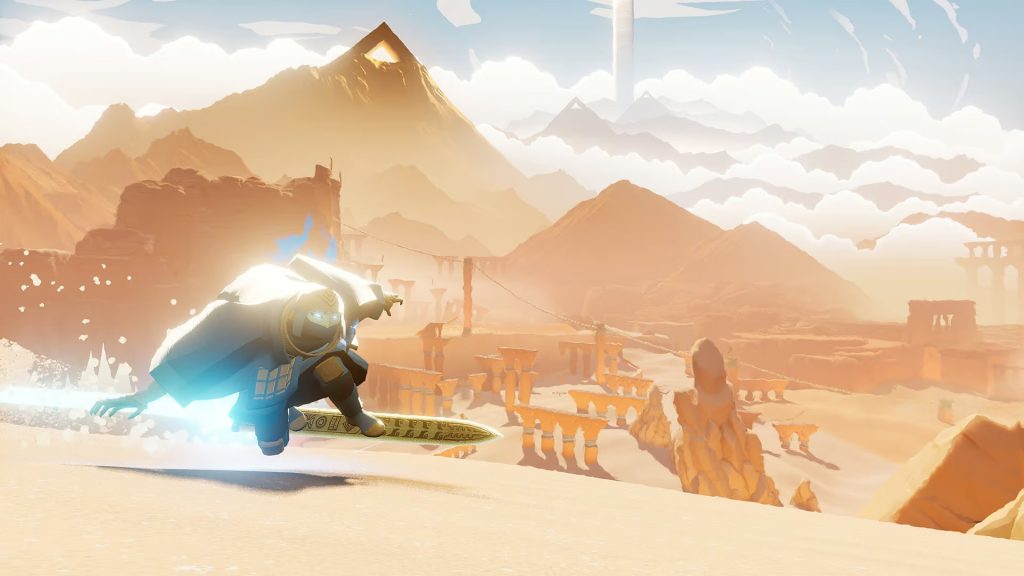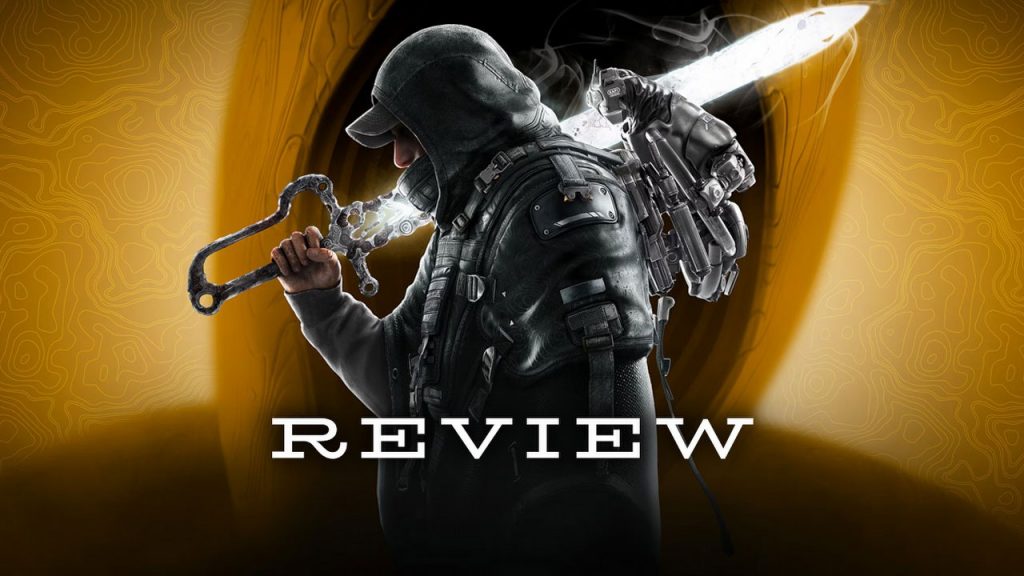Somewhat unintuitively, Sword of the Sea doesn’t really play like a skateboarding game.

Giant Squid’s Sword of the Sea immediately hooks you. Playing as some sort of ancient knight, awoken from your slumber by a single drop of water, you’ll wield a sword which carries two magical properties. First, it can open up nodes of water, causing waves of ocean to wash across the game’s desert landscape, changing its topography and activating various platforming elements. Second, and much more core to the game’s moment-to-moment action, this sword also floats, allowing you to ride it around like a supercharged skateboard.
This makes for a very interesting platformer, and Sword of the Sea is certainly more of a pure platformer than Giant Squid’s previous games Abz? and The Pathless. Somewhat unintuitively, though, Sword of the Sea doesn’t really play like a skateboarding game. Its trick system is too simple for that. Instead, it’s more akin to a 3D Sonic the Hedgehog game.
The game can be thrilling at high speeds, requiring you to build and maintain momentum, all while reacting to obstacles and chaining together a handful of different actions. The game even works well at more moderate speeds, when it takes on a pleasantly laidback feel. It’s also generally forgiving, with a double jump and large hitboxes allowing for a more loose and improvisational approach to platforming, as opposed to something more prescriptive.
The other more obvious point of comparison here is Journey, and not just because of the gliding movement and desert setting, but because creative director Matt Nava and composer Austin Wintory worked on that game too. Indeed, your zippy descents and floaty jumps across Sword of the Sea’s world feel like a natural extension of Journey’s gentle yet kinetic sense of flow.
Movement, though, isn’t why Journey became a classic. A bit like a good ambient album, that game simply set an unobtrusive yet unforgettable mood—reflective and probing, often beautiful, but in spare, slightly unusual ways. Sword of the Sea’s tone is quite different. It’s brighter and more colorful, with sparkly sand and shimmering water and sea creatures floating through the sky. It also leans more heavily into the fantastical. It can even get silly at times, which is only natural for a game about skating around on a floating sword, and isn’t a bad thing on its own.
But it does lead to moments where it seems like different elements of the game aren’t pulling in the same direction. Particularly jarring are a couple of sequences where you forgo your sword in order to ride, first, a dolphin and, then, a shark, both of which are almost cartoonishly huge. The first time this transpires, it’s so unbelievable that it comes across as almost hysterically funny. But it soon becomes clear that the game intends these sections to be entirely sincere dramatic climaxes, complete with symphonic swells, and the dissonance is almost too much to take. These parts also unfortunately feel a bit underbaked in terms of their actual gameplay, and their relative simplicity when compared to the rest of the game overstays its welcome.
Sword of the Sea also ends very abruptly. And though it may be strange to criticize a game for being too short—better to be left wanting more, right?—that abruptness only magnifies the sense that something is missing here. Yes, A Short Hike is about half as long, and Journey is probably about the same length. But those games felt fleshed out in a way that this one doesn’t. Perhaps if its atmosphere was more coherent then Sword of the Sea would feel like a vital experience that’s just a bit flawed. Instead, it feels like a strange yet often fun little mishmash. Plus, if it was a bit longer, then maybe it would be easier to forgive all of that fish riding.
This game was reviewed with a code provided by Giant Squid.























暂无评论内容